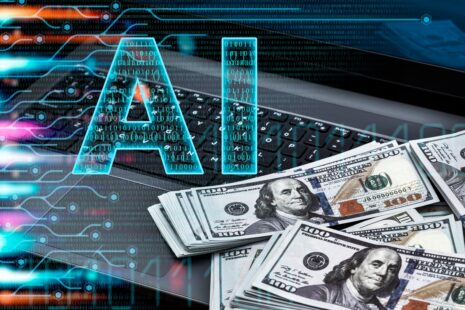The year 2050 may seem like a distant future, but it’s closer than we think! Rapid advancements in technology, shifts in global demographics, and evolving environmental conditions are shaping the world we will live in by mid-century. So, what can we expect in 2050?
Some of the most likely changes and trends that could define the world in 2050
The Rise of Artificial Intelligence and Automation
AI is already transforming industries, but by 2050, its impact will be even more profound.
- AI in Everyday Life – AI will be deeply integrated into our daily routines, from smart assistants managing our homes to AI-driven healthcare solutions providing personalized treatments. Automation will be a norm in various industries, including manufacturing, retail, and customer service.
- Job Market Changes – With automation taking over repetitive tasks, we could see the disappearance of certain job types, but the rise of new roles focused on managing, programming, and overseeing AI systems. Workers will need to adapt through continuous learning and reskilling.
Sustainability and Climate Change Action
By 2050, tackling climate change will be more urgent than ever. The actions we take in the coming decades will shape the planet for future generations.
- Clean Energy – The transition to renewable energy will likely be complete, with solar, wind, and possibly fusion power taking the lead. Fossil fuels will be phased out, and electricity will be produced sustainably, reducing carbon footprints.
- Green Cities – Urban planning will prioritize sustainability, with eco-friendly buildings, green spaces, and clean transportation. Smart cities with energy-efficient systems will help reduce waste and improve quality of life.
- Environmental Conservation – Efforts to combat deforestation, pollution, and biodiversity loss will be critical. By 2050, we might see the restoration of ecosystems and the implementation of circular economies, where waste is minimized, and products are reused or recycled.
Health and Longevity Advancements
Advances in healthcare and technology will significantly extend human lifespan and improve quality of life.
- Personalized Medicine – Genetic testing and AI will enable highly personalized treatments. Doctors will be able to customize medications and treatments based on an individual’s genetic makeup, improving effectiveness and reducing side effects.
- Longevity – With breakthroughs in biotechnology and regenerative medicine, we may see the first generation of people living well beyond 100. Advances in anti-aging research could delay the effects of aging, allowing people to live healthier lives for longer.
- Robotic Surgery – Robotic-assisted surgeries will be the norm, making operations safer and more precise. AI and robotic technology will also enable remote surgeries, allowing specialists to perform procedures across the globe.
Transportation Revolution
The way we move from place to place will be dramatically different in 2050.
- Electric and Autonomous Vehicles – Most cars will be electric, reducing emissions and dependence on fossil fuels. Self-driving cars will dominate the roads, making transportation safer and more efficient.
- Hyperloop and High-Speed Rail – Hyperloop systems (vacuum tube trains) and advanced high-speed rail will offer incredibly fast travel between cities, reducing the need for air travel and transforming how we think about commuting.
- Flying Cars and Drones – The long-promised flying car could be a reality by 2050, with electric vertical take-off and landing (eVTOL) vehicles providing air taxis for short trips. Drones will play a significant role in delivering goods and possibly even people.
Space Exploration and Colonization
By 2050, humanity may have taken its first significant steps in space exploration, with the potential for colonization on other planets.
- Mars Colonies – Space agencies like NASA and private companies such as SpaceX are working towards sending humans to Mars. By 2050, we could see the first permanent human settlements on the Red Planet, complete with habitats, greenhouses, and scientific research stations.
- Space Tourism – Commercial space travel will likely be accessible to wealthy individuals and tourists. Space hotels, lunar trips, and asteroid mining could become multi-billion-dollar industries.
- Interplanetary Travel – As technology advances, space travel could become more efficient and affordable, potentially leading to the colonization of moons or planets in our solar system.
Global Demographic Shifts
The world’s population will continue to grow, but the distribution of that population will change drastically by 2050.
- Aging Population – Many countries, especially in the West, will see an aging population, which will create challenges for healthcare systems, pension plans, and the workforce. The demand for elder care and healthcare professionals will skyrocket.
- Urbanization – More people will live in cities than ever before. With increasing urbanization, we’ll see the rise of mega-cities, some with populations exceeding 20 million people.
- Shifting Global Power – Emerging economies, particularly in Asia and Africa, will become global economic powerhouses. As developing countries continue to grow, we’ll see a shift in political and economic power, leading to a more multipolar world.
Education and Lifelong Learning
Education will be radically transformed by 2050, adapting to the needs of a rapidly changing world.
- Personalized Learning – AI will allow education to be customized to individual learning styles and needs. Virtual tutors and interactive learning platforms will provide students with a highly personalized education experience.
- Remote and Hybrid Learning – With the rise of virtual reality (VR) and augmented reality (AR), students could attend classes in virtual spaces, interact with historical figures, or explore other planets – all from their living rooms.
- Focus on Lifelong Learning – As job markets evolve, there will be a growing emphasis on continuous learning. People will need to upgrade their skills regularly through online courses, workshops, and VR training programs.
The Evolution of Social Interaction
How we interact with each other will continue to change with advancements in technology and shifts in social norms.
- Virtual Reality and Augmented Reality – Virtual environments could become more immersive, allowing people to meet, work, and socialize in virtual spaces. VR will make distant relationships feel closer and allow for experiences that are currently impossible.
- Social Media Evolution – Social media platforms may evolve into more immersive and interactive spaces. AI-driven social platforms could create highly personalized content feeds and facilitate deeper connections between people with shared interests.
- Changing Work Environments – Remote work will be even more common, with virtual offices replacing physical ones. Workplaces will become global, with collaboration happening across different time zones and cultures.
The year 2050 will bring exciting advancements and challenges. From AI and automation reshaping the workforce to breakthroughs in healthcare and space exploration, the world will look vastly different from today. We may face environmental, social, and economic hurdles, but the potential for innovation and progress is enormous. While we can’t predict everything with certainty, one thing is clear – the future is coming fast, and we’re all part of shaping it.




